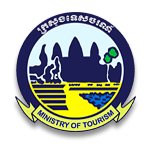Issue Description
Under Prakas No. 247/22 dated 21 September 2022 issued by the Ministry of Labour and Vocational Training, workers employed in the textile, garment, and footwear manufacturing sector, and the travel product/bag manufacturing sector, are entitled to a minimum wage of USD 198 per month for probationary workers and USD 200 per month for regular workers, effective from 1 January 2023.
Furthermore, the Law on Minimum Wages enacted in 2018 guarantees a minimum wage for workers covered by the Labour Law. These include most employees working in the private sector, except for those in the air and maritime transportation sectors. To date, however, the MLVT has not issued Prakas on the minimum wage for sectors other than those mentioned above.
Any agreement, whether written or verbal, providing a minimum wage lower than the level determined by the MoLVT will be null and void.
The tourism industry is fragile. Its prosperity relies, more than in other sectors, on enabling external factors, such as the spending power of foreign tourists and economies, and international travel restrictions. Without these factors present, the industry is very vulnerable to massive shocks and downsizings, with massive social and economic implications, particularly in a developing economy such as Cambodia.
Through the COVID-19 pandemic, we witnessed the devastating effects brought on by imposed international travel restrictions on the Cambodian tourism industry. Total revenue in the sector went down from USD 4.9 billion in 2019 to a mere USD 184 million in 2021. Thousands of tourism and hospitality workers lost their jobs, with an estimated 650,000 pre-COVID-19 workforce dwindling to much smaller numbers. Many of the workers were forced to return to their home villages in Cambodia.
To offset these dramatic social and economic changes, the Cambodian Ministry of Tourism stepped in to help, announcing support packages to workers in the tourism and hospitality sector in 2020. These packages included covering 20% of the workers’ minimum wages and enrolling them in professional training.
Impact on business
Although the Ministry of Tourism has a history of supporting the industry financially, there is currently no comprehensive support system in place in case of future shocks. The limitations of the industry are still there, as they are connected to the intrinsic nature of the industry itself: high turnover, low wages, and vulnerability to external factors. A minimum wage would potentially provide much-needed financial stability, help offset some of the industry’s inherent precariousness, and increase the appeal of the industry for the low-skilled segment of Cambodia’s workforce, which is considerable. It would also protect workers from the current inflation.
Though the idea of instituting a minimum wage for tourism workers can be attractive to consider for social justice reasons, there are also challenges to consider. Compared to sectors that have an established minimum wage, such as the garment industry, the tourism sector is much more heterogeneous in terms of the size of businesses and the level of compliance with business registration and tax filing requirements set by Cambodian law. The majority of the industry is numerically constituted by small and medium-sized enterprises (SMEs), often family-owned, many of which are not registered with Cambodian authorities. This would make it challenging for the Royal Government of Cambodia to track down and distribute minimum wages to workers in these businesses. However, there are also significant numbers of larger establishments, such as internationally-recognised hotel brands, that would not have this issue due to being more compliant on average.
Recommendation
- Create a working group on a minimum wage for the industry.
Given the potential pros and cons of instituting a minimum wage in the industry, we respectfully recommend that the Ministry of Tourism, or other authorities, establish a working group to set a minimum wage for workers in the tourism and hospitality sector.
This will ensure that workers in this sector are fairly compensated for their work and will help to reduce poverty and promote more equal opportunities.
The working group can take inspiration from the successful working group on the minimum wage in the garment industry, which has helped to improve the lives of many workers in that sector. The working group should engage in a transparent and consultative process to determine a fair and reasonable minimum wage for the tourism and hospitality sector.
Royal government of Cambodia
Initiative from Eurocham: The issue has been raised by the Tourism & Hospitality Committee within The White Book edition 2024 in the Recommendation No. 63.

National Counterparts

Ministry of Tourism

